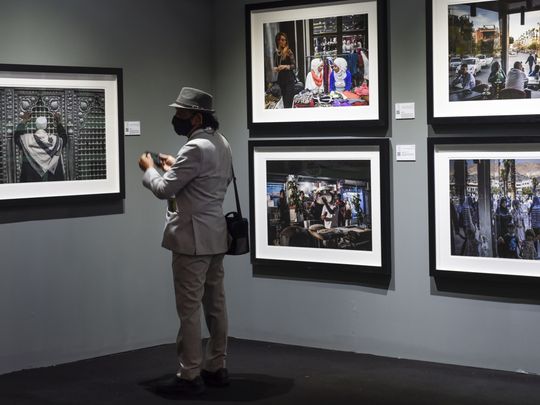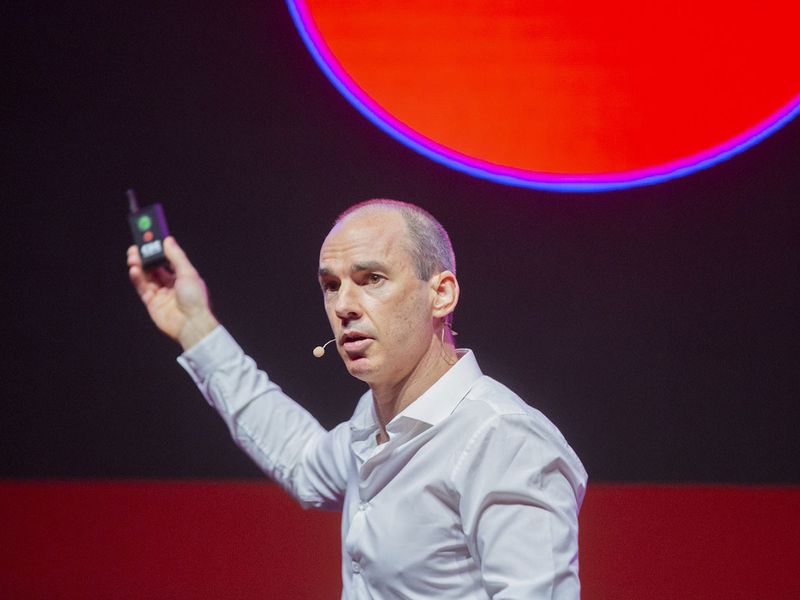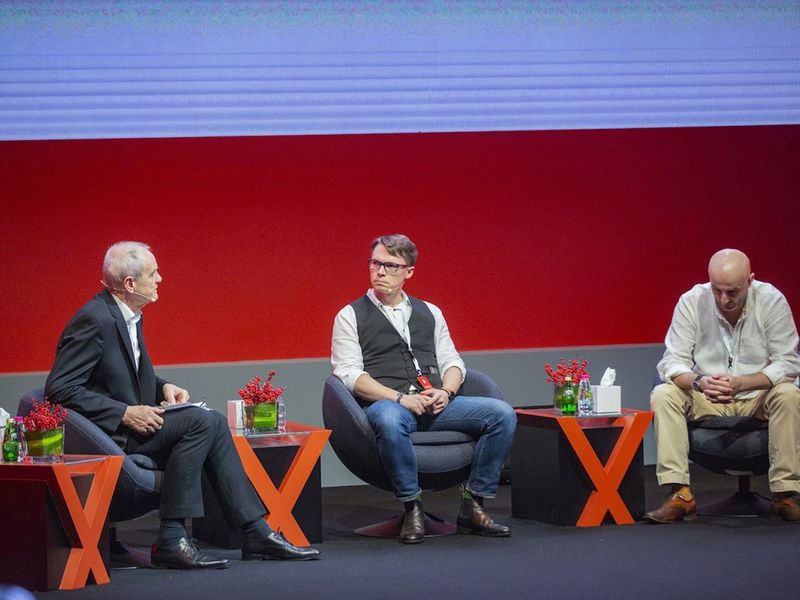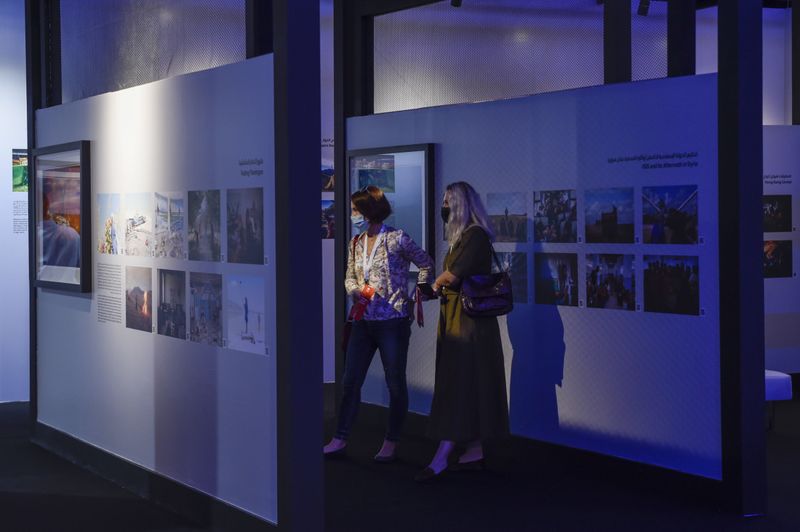
Sharjah: An award-winning photographer has collaborated with non-government organisations and other entities to influence governments to raise awareness and improve the condition of prisoners with mental health conditions.
Sharing his experience at the 5th Xposure International Photography Festival at Expo Center Sharjah, Robin Hammond said: “It was a conversation with a cab driver in 2011 while on an assignment to cover a developing political story in South Sudan that eventually changed the course of my photographic work. On learning that people with mental health conditions were chained and locked in prisons, I visited the nearby prison and was shocked to discover dozens of men and women living in the most horrific conditions,” said Hammond, adding: “It was a place that you smell even before you see it.”
Since then Hammond has resolved to use his photos to document evidence of human rights abuse and make a difference to people with mental health conditions. His work has since led him on a mission to end the abuse and change the perception of mental health as he chronicles stories of mental health, psychosocial, intellectual and cognitive disabilities in 17 countries and refugee camps.

“It was important to amplify the voices of marginalised groups,” said Hammond during his talk titled ‘Condemned: Mental health in countries in crisis’.
Narrating the story of a mother whose 12-year-old son had been tied to a tree for ten years, Hammon said: “Sometimes it was sheer desperation or the lack of a safety net that forced families to chain their loved ones. The choice before her was to let him free and neglect her four kids or tie him up to be able to feed and look after all five.” He added: “Disabling environments such as poverty, war, refugee camps and living in societies that shun and stigmatise are exacerbating mental health conditions of people everywhere.”

His collaborations with NGOs have influenced governments, inter-governmental organisations and corporations to put an end to shackling people with mental health conditions. Today, 80 of the 88 people incarcerated at the South Sudan prison he first visited have been released.
Sharing experiences from the frontlines
In another forum titled ‘Where Do You Draw the Line’, celebrated Russian photojournalists Sergey Ponomarev and Dmitry Beliakov shared their experiences of covering the ongoing conflict in Ukraine.

The emotional toll the job can take on photojournalists was expressed by Ponomarev, who said he had been treated like a traitor, beaten up by the Ukrainian forces while crossing check posts and had suffered many injuries, including several broken ribs.
“I just strapped a belt across my ribs and went back to work. Photojournalists are visual historians; their work is keeping civil society informed of events that have the capacity to affect all of us. It is hazardous work, in the extreme,” he said.
Beliakov, meanwhile, has faced life-threatening situations throughout his time in Ukraine. “It is all a part of the job,” he said, adding: “In 2014, while covering the conflict in Ukraine with a team, I was stopped by a group of separatists. One of them started threatening me and shoved a gun in my stomach. I was lucky that he was pacified when I apologised, but I could have been shot that day.”
Ponomarev is a freelance photographer based in Moscow and is best-known for his work covering wars and conflicts in the Middle East as well as the migrant crisis in Europe. He was part of the New York Times team that won a Pulitzer Prize for their coverage of the exodus of refugees from the Middle East and Africa to Western and Northern Europe in 2016. Beliakov is one of only two photojournalists to document the second Chechen War. His images of the Beslan school hostage massacre in 2004 shook the world. He also covered the conflict in Ukraine from 2014 until 2019.
How to make ordinary photograph extraordinary?
Commercial photographer Mike Browne highlighted the importance of mastering the technique of adjusting focal length and applying it correctly to capture good images during his discussion titled ‘Focal Length Explained’,
He said: “There are only five things you need to master in order to click a good photo. These are shutter, aperture, ISO, focal length and auto focus. If you know these five well, you can click beautiful pictures. Good use of these can change the mood and the feeling of a photograph dramatically
Read more
Browne also shared some hands-on, practical advice with the workshop’s participants, referencing his career experiences during an interactive workshop.He advised: “Look at everything while clicking a picture — not just the thing that you are photographing. To make your pictures more striking, you need to move along with the camera. Don’t just zoom, dance with your camera.”








